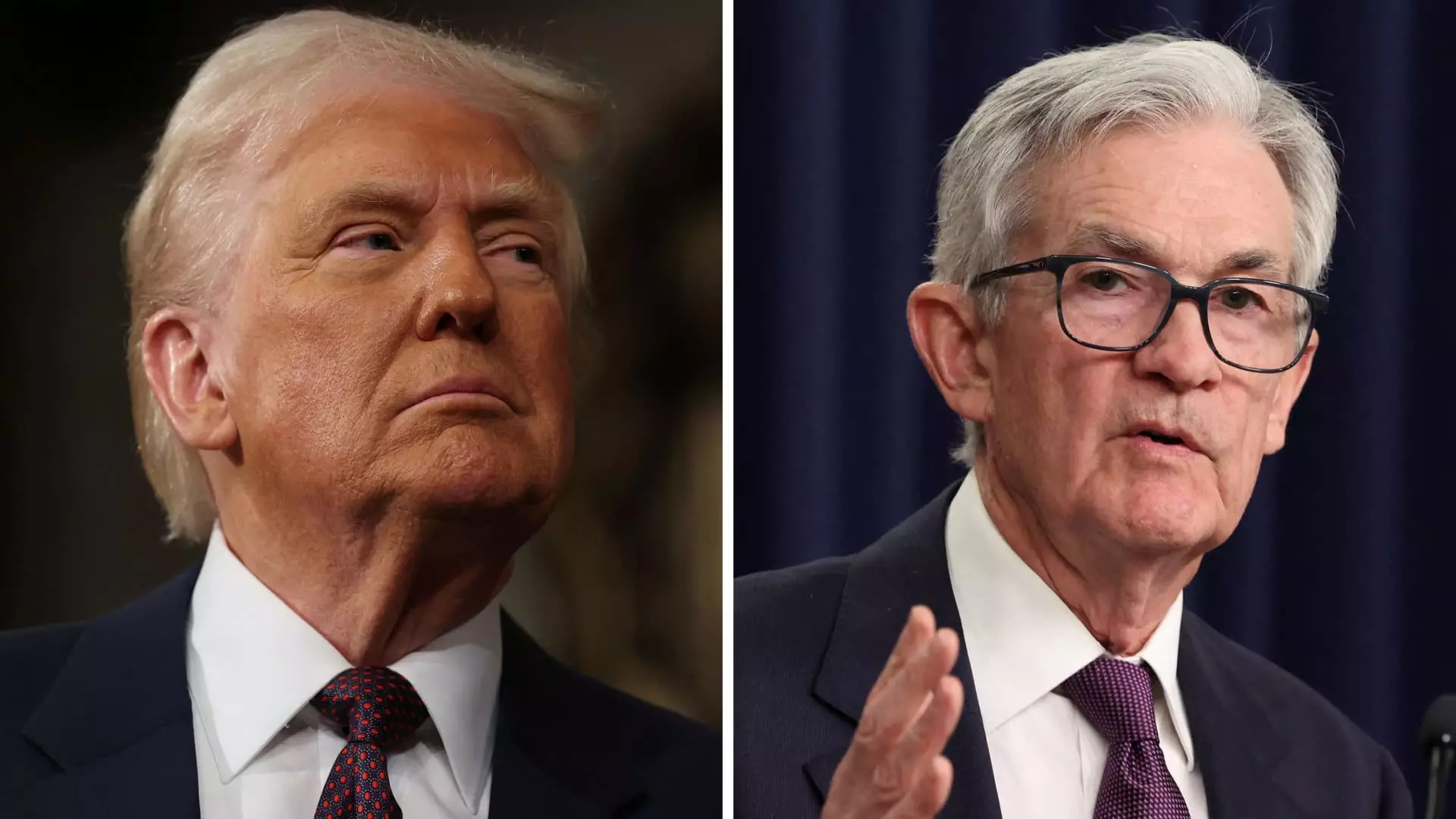Former President Donald Trump’s continued vocal attacks on the Federal Reserve and its chair, Jerome Powell, raise serious concerns about the integrity of monetary policy in the United States. The insinuation that Trump would support the termination of Powell signifies an alarming trend toward the politicization of the Fed, which is designed to operate independently of political influence. A strong central bank is crucial for maintaining economic stability, and when leaders play politics with monetary policy, it can lead to long-term economic repercussions, such as inflationary pressures or unsustainable growth.
The Pressure for Lower Rates
In his recent Truth Social post, Trump urged the Federal Reserve to lower interest rates, citing the actions of the European Central Bank (ECB). While it is not uncommon for politicians to call for lower rates in pursuit of economic growth, especially during uncertain times, Trump’s approach turns a constructive dialogue into a battle of wills. Lowering rates without due consideration of existing economic data can lead to a boom-bust cycle that ultimately harms everyday Americans.
Making decisions based on political whims rather than economic fundamentals is a perilous game. Powell’s cautious stance, as highlighted in his recent speech at the Economic Club of Chicago, underscores the complexities the Fed faces. The administration’s tariffs create ambiguities in the economy that the Fed must navigate with care, yet Trump seems to dismiss this complexity entirely.
The Consequences of Fire and Brimstone Rhetoric
The rhetoric Trump adopted regarding Powell is particularly concerning. The suggestion that Powell may be easier to remove or that his position is in jeopardy due to political disagreements threatens the independence of the Federal Reserve. This volatility discourages cautious, long-term economic decision-making, resulting in market instability. Markets react to uncertainty; knowing that their fiscal overseer operates under the threat of termination makes for a risky environment that could stifle investment and growth.
Additionally, the perception that the White House is meddling in monetary policy could deter international investment. Investors seek stable economic environments, and the mere notion of an imminent Fed chair firing could send shivers down the spine of those looking to inject capital into the U.S. economy.
Historical Context and Responsibility
Examining the historical context, one observes similar attempts to influence central banks can lead to disastrous outcomes. The last time the integrity of the Fed was seriously called into question was during the tenure of Richard Nixon, whose attempts to manipulate monetary policy directly resulted in rampant inflation, which took years to rein in. Central banks require a degree of insulation from political pressures to effectively manage economic challenges.
With Powell’s term extending until 2026, there needs to be a national commitment to a non-political, steady approach to fiscal management. Irrespective of party lines, it is crucial that politicians recognize the importance of allowing experts like Powell the autonomy to navigate the fine line between inflation control and growth stimulation. The moment we allow political rhetoric to interfere with expert guidance is the moment we relinquish sound economic judgment out of fear of being politically punished.

